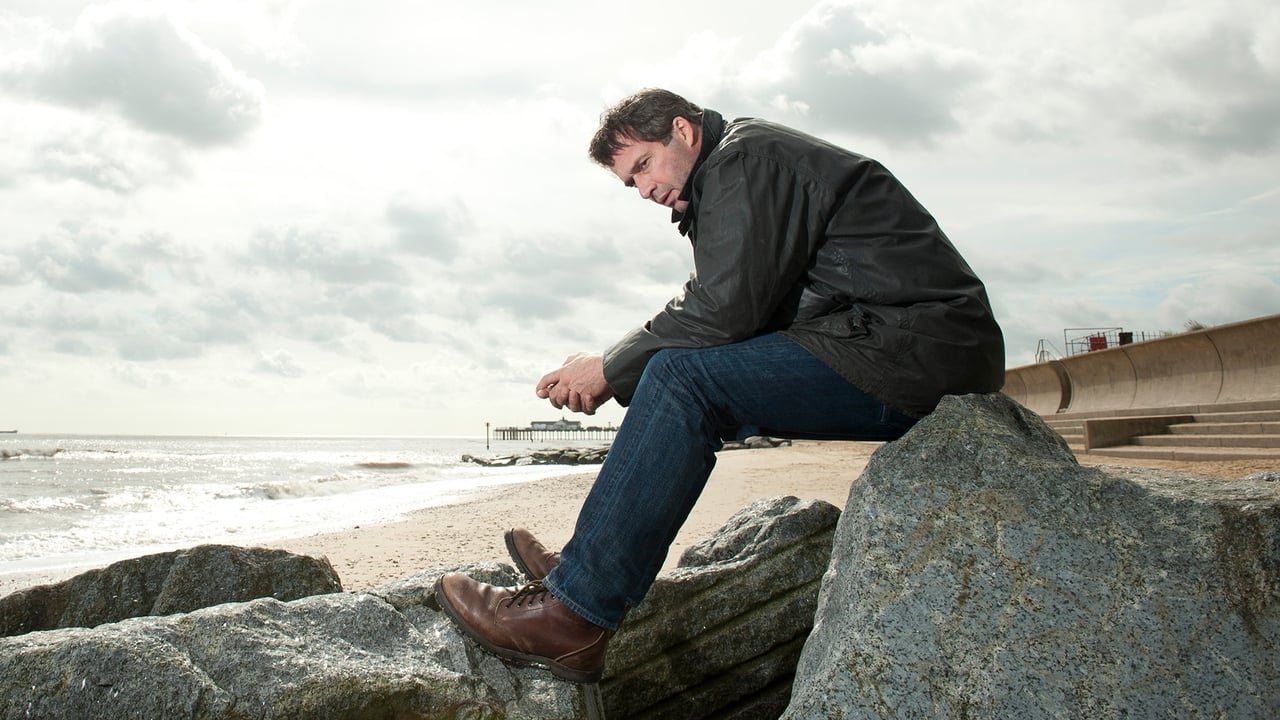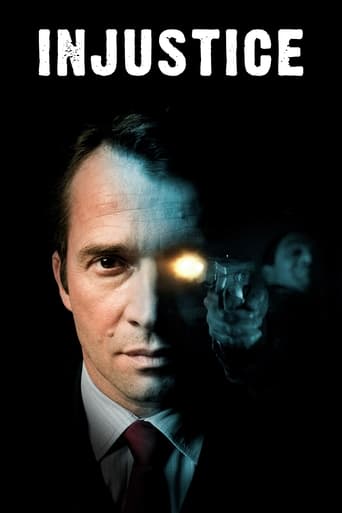

This show was pure entertainment from the start. Good story with a twist, good acting, a few surprises and well worth watching.
... View MoreI am pretty disappointed after it ended. The show seemed to have so much more potential and ideas than that lazy finale.The show seemed to have very smart. I expected something about the idea of injustice, and what it means. I thought that since the first guy William killed was an animal rights activist that used violence to get what he saw as justice, there will be some philosophizing about how what Will does can be compared to it and more thoughts on performing self justice. I thought that since William was going through psychologically painful time of questioning the legal system after he defended someone who was indeed guilty he will not be able to handle defending his innocent friend Marting and this would end up sending him to jail and thus again showing the injustice happening.Nothing like that happened. The ending was laughable. My thoughts on the final episode are in my review on this episode. I find it very lazy to suddenly make Martin interested in child pornography. Not only was it basically out of nowhere and William's thought process made no sense whatsoever, it also was just a cheap move to make people in our easily manipulated and child crazy society to see what Will has done justifiable and right without giving it any deeper thought. I think the only people who will be satisfied with this kind of the finale are fat, uneducated housewives who watched Nancy Grace and until now are crying about "baby killer" being out and how they would want to kill her. Which also explains why the group who gave this show the highest score are females 30-44.I am also kind of sad that the story of Alan and his book wasn't really developed. He was just the link to the gun Will used, and while I can see that it is a mini series but I wish there was a bit more to it.There are lots of clichés in this show. I already mentioned that the guys who were lynched by William both committed crimes with children involved. Then we also have the good, talented guy that was bullied and one day couldn't handle it and shot the bully. The mean cop who is abusive to his wife because he got changed by his work. And his partner is of course a new, nice guy. The animal rights person who is of course the evil one because he cares about other living beings as well. etc. etc. etc. But I must say most of them didn't bother me too much. Except for the first one, but this is just because it happened twice, and one should not overuse such a formula in a 5 episodes show.So why after writing so many negative things do I still give it 7/10? Well, because the rest was pretty good. The acting was absolutely high class. There isn't one actor who I think wasn't giving a top performance throughout the show. There were great scenes, great dynamics The ideas were all very good as well. If only one could rewrite the ending it would have been a real masterpiece of television.
... View MoreTo best convince you that this is a great series, short as it is, I'll be spoiling most of the plot. That's how convinced I am that a spoiler can also be a seller. William Travers, played by James Purefoy is an extremely successful barrister; we see him in action right from the start and so have little difficulty with the sometimes references to his reputation as a formidable lawyer. What we also learn midway the short five sequels episodes, is that he's prepared to risk his license by walking away from a case if he loses trust in his client; defending innocent people is his sole mission and he does not accept cases if he has doubts about a prospect client's innocence.Unlike TV series which themes deal with justice, the law and police investigations, this series is more like five a part movie about a uncommon defence lawyer. He spares no effort turning every stone and considering any detail that might help prove all his clients' innocence; an hour TV episode or a two hour regular movie would usually feature an "eureka" moment but not "INJUSTICE". No 'Cracker Jack' storyline here to meet a production deadline.We rout for Travers with each small piece of information he and his team manage to gather for their case. The case in play here is a murder trial where the accused is an old friend; Travers had previously sworn never to work murder cases after the mental breakdown he suffered following what should have been his last successful murder case. We are confronted by bits and pieces relating to that former case; we are made to understand that a young boy was killed by the blast of a bomb and that the man responsible, an extremist animal rights activist had fooled Travers in believing in his innocence. Episode after episode show glimpses of Travers, flashes of memory, assassinating his former client out of a sense of justice, but this culmination of his mental breakdown only heightens our doubt about his current case. We slowly develop doubts and questions for which we cannot form simple answers. Might he be falling into another similar trap? Developments point to his current client's innocence while the case also becomes more and more difficult for his client; the more challenging it gets, the more we lean on the side of his innocence. Travers mental state has not been remedied despite what all around him perceive. The more predictable it should become, the less it in fact does.To make matters more interesting to the audience, the most despicable detective inspector on the force, DS Mark Wenborn (played superbly by Charlie Creed-Miles), is making slow but clearly cumulative progress that he hopes will result in charging Travers with the murder of his former client, a prospect which unleashes Wenborn into all sorts of abuses of authority toward his goal. It's personal for Wenborn. He might have only stumbled on small clues at first, but his resentment of Travers fuels his vile ambitions.Five episodes allow us to get to know the main characters in their personal lives, not just as officers of the law or of the court; we follow them with their families and colleagues and so we can relate to them as ordinary persons. Sympathy, empathy, support builds for barrister Travers, while we loathe Wenborn. We get emotionally interested in the characters. Something European productions are far better at incorporating in their scripts; the resulting production is richer and has thus more depth. I'm abstaining for revealing more; there are indeed more, even intertwined sub-plots that had me addicted to watch "INJUSTICE". Few have taken the time to write reviews and or to vote, but the weighted average rating of 8.2 supports my conclusion that this is well worth watching and I hesitate not in recommending it.
... View MoreInjustice is exactly the kind of well-written drama series that ITV should be making more of. The plot centres on a seemingly high-flying lawyer, William Travers, who enjoys the trappings of wealth and is known for his success in court. The 5 episodes, however, show that his life is far more complex. Feeling guilty that one of his clients was acquitted of murder but later confessed privately to him that he had actually killed a young boy, Travers kills the man. We then follow the police investigation, as the moody and emotionally unstable DS Wenborn begins to track the killer. Worlds are about to collide, but Wenborn's life unravels more dramatically than could be expected. Travers, back in London defending an old university friend from a charge of murder, has deja vu when it emerges that his 'friend' is really a sick killer...the show finishes with Travers seemingly let off the hook.
... View More